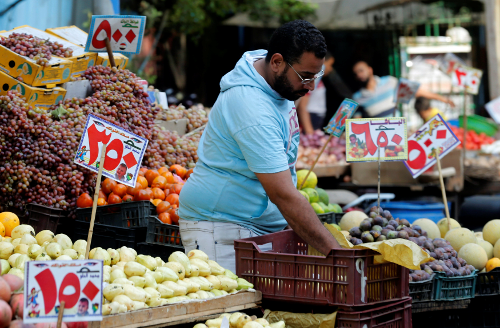Inflation in Egypt slows again as foreign currency crunch eases

TLDR
- Egyptian inflation decelerates for the 2nd consecutive month due to increased availability of foreign exchange post currency flotation.
- Urban consumer price inflation rate drops to 32.5% in April from 33.3% in March, continuing the downward trend since September.
- Food prices show a 0.9% decline in April but remain significantly elevated, up by 40.5% compared to the same period last year.
In April, Egyptian inflation continued its deceleration trend for the second consecutive month, buoyed by increased availability of foreign exchange following a recent currency flotation, which seemed to alleviate some of the price pressures in the region's most populous country.
According to data from Egypt's statistics agency CAPMAS, the annual urban consumer price inflation rate dipped to 32.5% in April from 33.3% in March, indicating a continuation of the downward trend observed since September, when inflation peaked at 38.0%.
On a month-on-month basis, prices saw a 1.1% increase in April, up from the 1.0% rise recorded in March. Notably, food prices experienced a decline of 0.9% in April, although they remained significantly elevated, standing 40.5% higher compared to the same period last year.
Key Takeaways
Inflation in Egypt has remained elevated over the past year, primarily fueled by the rapid expansion of the money supply. In response to this persistent inflationary pressure, the central bank took decisive action by tightening its monetary policy. This included a significant increase in interest rates by 600 basis points on March 6, coinciding with the signing of a $8 billion financial support package with the IMF, and allowing the currency to depreciate. Egypt also pledged to resume tightening its monetary policy if deemed necessary to prevent further erosion of households' purchasing power. Additionally, the government implemented measures to address inflationary concerns, such as increasing the prices of various fuels including petrol and diesel.

Next Frontier
Stay up to date on major news and events in African markets. Delivered weekly.
Pulse54
UDeep-dives into what’s old and new in Africa’s investment landscape. Delivered twice monthly.
Events
Sign up to stay informed about our regular webinars, product launches, and exhibitions.




